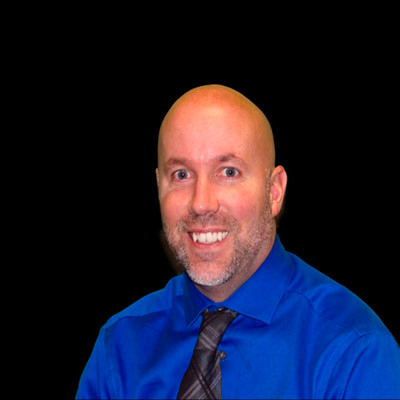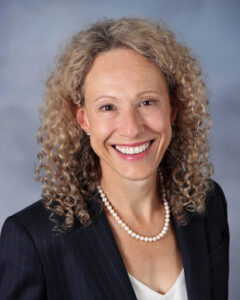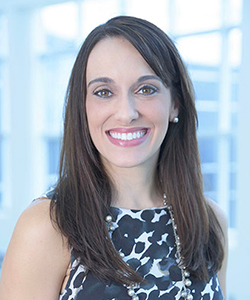Students become fluent readers. A district builds a pipeline of skilled literacy educators. Preservice teachers get on-the-job training by delivering evidence-based reading instruction.
All of these successes are happening thanks to an innovative, four-way partnership between Orange County Public Schools (OCPS), the OCPS Read2Succeed tutoring program, the University of Central Florida School of Teacher Education, and Collaborative Classroom.
Learn how this partnership works by reading our interview with leaders from OCPS and Read2Succeed, as well as a professor and student at the UCF School of Teacher Education.
Interview with David Gorham, Director, Elementary Curriculum and Instruction, OCPS

How does the partnership between the OCPS Read2Succeed tutoring program, the University of Central Florida’s School of Teacher Education, and Collaborative Classroom support the reading goals of Orange County Public Schools?
David Gorham: The Read2Succeed program — in collaboration with UCF and Collaborative Classroom — supports our reading goals in many ways.
First, the pull-out tutoring service that is utilized helps students to receive small group instruction on their level, and helps us to close the achievement gap for these students who are not yet reading on grade level.
The Read2Succeed program — in collaboration with UCF and Collaborative Classroom — supports our reading goals in many ways.
Also, the use of Collaborative Classroom’s SIPPS program provides the tutors with a curriculum that follows our Structured Literacy plan, which calls for explicit, systematic, cumulative, sequential, and multisensory lessons.
Progress monitoring is embedded directly into SIPPS, which allows our tutors, the school, and district staff to ensure each student is making progress towards the goal of becoming a successful, on-grade-level reader.
How do you anticipate the partnership affecting staffing and hiring in OCPS? How do you anticipate the partnership affecting the preparation of the teachers you will hire in the future?
David Gorham: Ideally, the UCF students who are also paid tutors for OCPS will learn from the professional development and on-the-job training while teaching the SIPPS lessons for up to 2 years.
After completing their senior internship requirements, the UCF students would become eligible to start their teaching careers in OCPS, bringing a plethora of reading knowledge and resources with them into their classrooms.
Therefore, the UCF students could potentially enter OCPS with a great understanding of how to teach and monitor reading effectively, which is a skill set many veteran teachers are still building.
Orange County began implementing SIPPS as an intervention across the district in 2020, at the same time the Read2Succeed tutoring program began the Kindergarten SIPPS program. How has this partnership affected the SIPPS implementation in the district as a whole?
David Gorham: SIPPS has become our main intervention resource for reading for all grade levels. The use and training of SIPPS across multiple departments and grade levels has helped to really increase the awareness of the program.
SIPPS has become our main intervention resource for reading for all grade levels.
Our MTSS/Intervention team has created data tracking spreadsheets for SIPPS, which are used by many schools across the district. The Read2Succeed program also uses these spreadsheets. Hi-Lo readers have also been purchased to accompany the SIPPS program at all grades 4–12.
Related research brief: Orange County Public Schools: Read2Succeed Accelerates Early Reading Achievement with In-School Tutoring and the SIPPS Program
Interview with Elizabeth Conrad, Sr. Administrator, OCPS Read2Succeed

How has this partnership supported growing the already successful Read2Succeed tutoring program? What is next for Read2Succeed?
Elizabeth Conrad: The partnership with Collaborative Classroom and the UCF School of Teacher Education has supported Read2Succeed (R2S) by tremendous program growth in terms of quality of instruction and number of students we are able to serve.
For example, prior to utilizing SIPPS, Read2Succeed was not able to address the foundational reading skills that our Kindergarten and first-grade students needed to pave the way for reading mastery.
Preservice teachers from the UCF School of Teacher Education helped enroll an additional 500+ students in the K–3 R2S SIPPS tutoring program during the 2022–2023 school year.
Read2Succeed had a successful start to the 23–24 school year with the second cohort of junior preservice teachers. In addition, the first cohort had an opportunity to continue to tutor with R2S while completing their internship (this is a new component to the internship). This will lead to a deeper understanding and application of SIPPS.
Another opportunity that Read2Succeed is thinking about is supporting our district secondary schools with preservice teachers to tutor students who need 1:1 reading support.
The partnership with Collaborative Classroom and the UCF School of Teacher Education has supported Read2Succeed (R2S) by tremendous program growth in terms of quality of instruction and number of students we are able to serve.
What were the keys to setting this partnership up for success?
Elizabeth Conrad: The keys to a successful partnership are thinking outside of the box and ongoing communication.
In the past, Read2Succeed was deploying tutors that had a professional teaching certificate and preferred tutors with a reading endorsement (mainly retired educators).
While this ensures tutors have the credentials, we also recognized that SIPPS is a scripted program. If used with fidelity, preservice teachers who have not yet earned their professional teaching certificate would be successful in teaching the curriculum.
Collectively, retired educators and preservice teachers have both been effective teaching SIPPS. Student outcomes support and celebrate our success!
What do you think other tutoring programs could learn from this partnership?
Elizabeth Conrad: I believe other tutoring programs could benefit from the insights we’ve gained through this partnership.
First, it takes a well-built, evidence-based curriculum like SIPPS. Second, it takes people that are passionate about teaching and helping students to succeed.
Partnerships require creative thinking and not being afraid to try new ideas. It requires going above and beyond your daily job duties and ongoing communication between all parties.
Read part 1 of our interview with Elizabeth Conrad here: How the Read2Succeed Tutoring Program Supports Its Youngest Readers with SIPPS
Interview with Taylar Wenzel, Elementary Education Program Coordinator, Senior Lecturer, University of Central Florida (UCF)

Tell us a little bit about the University of Central Florida’s School of Teacher Education.
Taylar Wenzel: The School of Teacher Education is housed in the College of Community Innovation and Education at the University of Central Florida in Orlando. Currently, UCF is among the largest producers of teachers in Florida, with more than 90% of our graduates going directly into the workforce.
The School of Teacher Education encompasses Early Childhood Development and Education, Elementary Education, Exceptional Student Education, and Secondary Education.
The Fall 2022 semester saw 1,839 Undergraduate Students and 471 Graduate Students. According to U.S. News & World Report, the UCF School of Teacher Education ranks 58th as the Best Education School.
Students in the Elementary Education program take 3 reading courses as part of their educational coursework: Reading Foundations, Diagnostic and Corrective Reading, and a Reading Practicum course, taken in conjunction with their first internship placement.
How did UCF’s role in the partnership with OCPS and Read2Succeed come about? What considerations made UCF interested in participating?
Taylar Wenzel: UCF faculty leaders were approached by OCPS district and curriculum leaders to consider whether UCF preservice teachers could serve as tutors in a K–3 tutoring grant that was being written by the district.
Drawing on our history of offering course-embedded field experiences at school sites and our university-based reading clinic, we felt confident that our preservice teachers could help OCPS build capacity for accelerative reading instruction opportunities.
We acknowledge the vast body of research that supports clinically-rich opportunities for preservice teachers by blending practitioner knowledge and academic knowledge in highly supportive contexts, so we also knew this would be a positive opportunity for our students.
Additionally, a unique opportunity for our preservice teachers in this partnership was that they could gain employment by the school district early in their program (during the first semester of their upper-level teacher preparation coursework). This offered financial compensation that we have never been able to link to our previous tutoring opportunities.
Early part-time tutoring employment would also offer a seamless transition to other full-time paraprofessional and/or classroom teaching positions upon graduation and certification, which we knew would be supportive for our students.
As we began to conceptualize how UCF preservice teachers would become prepared to teach reading foundational skills to early readers with efficacy during their first semester of coursework, Read2Succeed’s partnership with Collaborative Classroom strengthened our confidence.
Collaborative Classroom’s commitment to continuous, job-embedded professional learning was evident from our earliest planning meetings as we outlined a professional learning plan that would support our preservice teachers at various stages across their first year of tutoring.
Collaborative Classroom’s commitment to continuous, job-embedded professional learning was evident from our earliest planning meetings as we outlined a professional learning plan that would support our preservice teachers at various stages across their first year of tutoring.
Furthermore, we knew that the use of SIPPS—an educative, evidence-based curriculum to teach reading foundational skills—would offer our preservice teachers an opportunity to build their own knowledge of reading by facilitating the embedded structured literacy lessons.
What supports have you put into place to ensure success for your UCF preservice teachers who are participating in this opportunity?
Taylar Wenzel: Here are the supports we developed for the Read2Succeed Teacher Preparation Pathway:
- Front-loading content knowledge to teach reading—provided through synchronous in-person sessions and asynchronous online content
- Coordinating and offering a professional learning plan for SIPPS
- Providing a dedicated faculty advisor to help students schedule their program coursework outside of their 4-day per week tutoring commitments
- Helping preservice teachers embrace and invite feedback on instruction with vulnerability and openness to professional growth
- Communicating within and across partners and departments to coordinate program pathway transitions (for example, school placements for both Read2Succeed and internships between Year 1 and Year 2 of the pathway)
How does participation in Read2Succeed supplement UCF students’ learning and future careers?
Taylar Wenzel: The Read2Succeed Teacher Preparation Pathway has strengthened our students’ confidence and teaching skills.
Our reading education course instructors have shared that they have been able to identify preservice teachers who are in the R2S pathway based on the level of detail and knowledge shared during class discussions and activities. These preservice teachers feel confident to participate and make connections to their R2S placements, lessons, and students.
Additionally, a comparison of pre- and post-pedagogical content knowledge survey data yielded learning gains for 100% of UCF R2S tutors during the 2022–2023 school year, with increases ranging between 26–48% among pre/post scores.
As UCF faculty, we also believe that the use of an educative curriculum like SIPPS has empowered our preservice teachers to not only learn about reading instruction, but to use the consistent lesson structures as opportunities to be fully present in each lesson and learn more about each student as a person and as a reader.
As UCF faculty, we also believe that the use of an educative curriculum like SIPPS has empowered our preservice teachers to not only learn about reading instruction, but to use the consistent lesson structures as opportunities to be fully present in each lesson and learn more about each student as a person and as a reader.
The instructional predictability of the SIPPS lessons supports our preservice teachers to become astute observers of their students in order to provide on-the-spot feedback and support.
The embedded reading assessment opportunities (placement assessments, mastery assessments) help our students understand the value of assessment-driven instruction in an authentic way, far beyond what we can discuss hypothetically in the college classroom.
What are some of the most recent developments in this partnership? What’s next?
Taylar Wenzel: Here are a few memorable developments from the summer. In June 2023, R2S Pathway Preservice Teachers had the opportunity to continue their tutoring roles in the district-offered summer school programming.
Other developments include:
- Internship placements for Year 2 and recruiting incoming tutors for the new cohort
- A dedicated reading course instructor and modified reading course delivery was identified for Fall 2023—offered in split semester format to front-load reading content during the Fall semester of the first year of tutoring
- Early discussions to expand the program for secondary education preservice teachers through the use of SIPPS Plus in Intensive Reading courses
Interview with Emily Perkins, Student, Elementary Education Program, University of Central Florida

This interview with Emily was conducted during the Spring 2023 semester.
Tell me a little about where you are currently in your Elementary Education program at UCF. What does a typical weekly schedule look like for you including your Read2Succeed and UCF course schedule?
Emily Perkins: I am currently a Junior in the Elementary Education program at UCF. This semester I am taking five courses, three of which are asynchronous online, one is in a Zoom modality, and the other is in-person. I tutor at Sunrise Elementary on Mondays, Tuesdays, Thursdays, and Fridays from 8:00 AM to 3:00 PM.
Being able to work 28 hours a week in a school and maintain a course schedule is a lot to juggle, but I am very happy to do it!
Why were you interested in becoming a Read2Succeed tutor?
Emily Perkins: I have worked in elementary schools since I was 18, and when I transferred to UCF in the Fall, I wanted to continue to do so. As soon as I read the flier for the Read2Succeed position at my transfer orientation, I knew that this was a program that I wanted to be a part of.
Knowing that if children fall behind in reading in kindergarten, first, or second grade, they generally don’t catch up to grade level is so disheartening. And I absolutely loved the idea that I could play a role in catching children up.
How are your experiences as a Read2Succeed tutor affecting your learning as a preservice teacher?
Emily Perkins: I think the experience I have gained (and will continue to gain) will prepare me immensely for my teaching career. I have learned so much through this position. I feel that I have genuinely learned so much about myself as an educator.
Being alone in the classroom with my own set of materials that I need to teach has been super eye-opening. It was extremely nerve-wracking at the beginning but as I have continued and gotten used to it, I feel like I have gained so much knowledge about classroom management.
I think as an educator, the core of my techniques is the relationships I maintain with the children. Children will learn from people they like, so I always try to ensure that I am someone that the kids can trust and enjoy learning from.
What is a tutoring experience you would like to share?
Emily Perkins: The thing I love most about teaching is when kids have that light bulb go off. And luckily for me, I have a lot of kids who get to experience that during our thirty minutes together, the four times a week I meet with them. Seeing the kids get so excited when I arrive at their classrooms to pick them up each day truly makes it all worth it for me.
There are many different experiences with the children that are worth talking about, but this is one of my favorite stories. One of my first graders is just the biggest personality ever. He loves to go on our walk from his homeroom classroom to my R2S classroom.
Well, one day was his lucky day because the other three kids in our group were absent. So as we were practicing our sight words one-on-one, we got to the word “isn’t.” When I showed one of my other groups “isn’t,” it was like I put up a word in a foreign language. They saw the apostrophe and immediately checked out.
So before I picked up the word to show him, I let him know that this word is a third-grade word and is just so tricky. I showed him and without any hesitation, he said “isn’t.”
I got so excited, and that immediately made him just light up like a Christmas tree. When I walked him back to class, he was just so excited to tell his teacher how he knew one of the trickiest words and to make it even better, she was just as excited as I was. Now, everyday, I intentionally keep “isn’t” in our practice stack so that he can get just as excited as the first time.
How has teaching SIPPS and participating in the SIPPS professional learning affected your knowledge of research-based practices for teaching early reading?
Emily Perkins: It’s been so helpful for my education as a teacher to have SIPPS be the first reading curriculum that I’ve experienced. Knowing that reading science and research are aligned with the practices I do daily through SIPPS is something I am grateful for.
It’s been so helpful for my education as a teacher to have SIPPS be the first reading curriculum that I’ve experienced. Knowing that reading science and research are aligned with the practices I do daily through SIPPS is something I am grateful for.
I began listening to a podcast called “Sold a Story” by the American Public Media. Throughout the six episodes, the host, Emily Hanford, discusses how school districts have ignored the research that scientists have produced on how children learn to read. At first I was hesitant to begin listening to this podcast, because as a new teacher of reading, what if the podcast told me that everything I was doing was wrong?
Well, fortunately for me, I had the opposite experience. The podcast backed up and confirmed every single practice I do through the SIPPS program. It encouraged the use of sounding out words, learning letter sounds, the importance of knowing individual phonemes, and all sorts of things in that nature, just like SIPPS does.
The Professional Development we get through Read2Succeed is definitely enhancing my knowledge and teaching practices. We get the opportunity many times throughout the year to support our SIPPS instruction through Zoom calls, meetings at UCF, Collaborative Coach cohorts, and side-by-side coaching.
***
Learn More About this Partnership:
Interview: How the Read2Succeed Tutoring Program Supports Its Youngest Readers with SIPPS
Research Brief: Orange County Public Schools: Read2Succeed Accelerates Early Reading Achievement with In-School Tutoring and the SIPPS Program
Related Resources:
How Florida Readers are Succeeding with SIPPS
After-School Reading Intervention Success with SIPPS: YMCA Reads, Florida State Alliance of YMCAs
